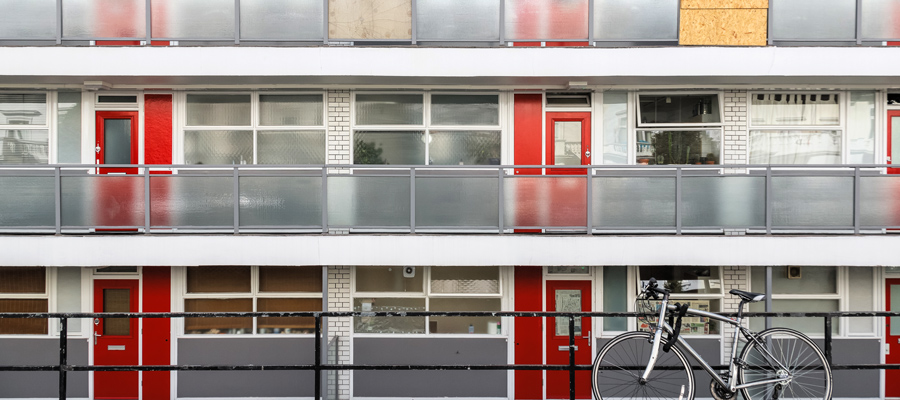Federal election: What’s in it for BC?

Let’s step back from the national big picture for a moment and take a look at some key issues that matter for BC. Many issues in our province need a response from the federal government whether due to jurisdiction or funding capacity. I point to where parties have so far made commitments, but in some cases we have heard little on issues that matter locally.
Child care
While the BC government has made a strong push to expand public child care, federal cooperation would greatly expand this work. The federal NDP promises $1 billion per year towards national, universal public child care starting in 2020. In BC, this would create approximately 65,000 new spaces over four years, double the Liberals’ 32,500 (before and after school care only) spaces. The Greens are also supportive and would build towards 1% of GDP going to child care funding, while the Conservative platform does not mention child care at all.
Affordable housing
The feds need to up their game in support of non-market rental housing from social housing to coops. Partnering with provinces, municipalities and non-profits, the federal government should put money and land on the table to kick start thousands of new affordable units per year. The Greens and the NDP have been the most supportive of new affordable housing investments at levels in BC of approximately 3,250 and 6,500 per year respectively.
Speculation and money laundering
Affordability requires measures on the demand side of the housing market as well. The Conservatives and NDP are calling for an inquiry into money laundering pushing up housing prices. The Liberals and NDP have proposed tax measures as speed bumps on foreign money going into Canadian housing.
Homelessness
Investments to eliminate homelessness are sorely needed as at least 7,600 homeless people have been identified through counts across BC and almost half of these are in Metro Vancouver (these are widely viewed as underestimates). Research shows that housing people costs less than the combined criminal justice, health care and policing costs of keeping them on the street. And homelessness intersects with mental health and addiction issues. Based on platforms, the Liberals and Greens would maintain existing funding commitments. The NDP aims to eliminate homelessness within a decade while the Conservative platform fails to mention homelessness.
Opioids
The opioid crisis shows that the ongoing criminalization of drugs is an abject failure. The NDP and Greens are calling for decriminalization of drug possession and for it instead to be treated as a public health issue backed by federal dollars. To date, no political party has taken heed of calls to distribute a safe supply of drugs to stabilize the situation and prevent more deaths.
Gas price gouging
The BC Utilities Commission (BCUC) inquiry into gas prices concluded that Vancouver prices were an “unexplained” 13 cent per litre higher than one would expect in a competitive market. The federal government has an important role here through the enforcement of the Competition Act. The NDP would create a Fair Gasoline Prices Watchdog to investigate complaints about gouging and anti-competitive activity.
Trans Mountain Pipeline (TMP)
The BCUC inquiry found that another part of higher gas prices stems from federal rules allocating space on the TMP, which have restricted access for Alberta-produced gasoline going to Vancouver in favour of increasing exports of crude oil to Washington state refineries. Since the feds own and regulate the TMP they could change these rules to give preferred access to domestic transport of gasoline to the benefit of Vancouver drivers and Alberta refineries. No parties have weighed in on this issue to date.
TMP Expansion (TMX)
The federal government has been pressing for a major expansion of the TMP—at a time when the world needs climate leadership to stop building new fossil fuel infrastructure and keep coal, oil and gas in the ground. Both NDP and the Green party have committed to stopping TMX, and the NDP would support a provincial veto over infrastructure projects that cross their borders.
LNG subsidies
The feds have committed to waive duties on imported steel modules for liquified natural gas (LNG) plants in BC. This is a $1 billion subsidy to the LNG Canada consortium and it also dramatically reduces the number of jobs (in steel-making, for example) that could otherwise be created in Canada. The NDP has called for Canadian steel to be used in all major infrastructure projects. The Greens would also eliminate another federal LNG subsidy in the form of accelerated capital cost allowances.
Public transit
Major new investments are needed to ensure the future prosperity of BC’s cities whose populations are growing but capacity to handle more cars is maxed out. Only the NDP has flagged this for permanent funding with an emphasis on scaling up low-carbon services. The Conservatives instead support a more car-centred vision that includes more freeways, bridges and tunnels.
Rural transportation
The loss of Greyhound bus service has greatly undermined mobility for lower-income British Columbians in rural areas, and it increases safety risks for Indigenous women in particular. The NDP commitment to re-establish and expand rural bus services is notable. The NDP would also grant an annual $30 million to BC Ferries, a doubling of the current contribution.
Forestry
BC’s forestry sector is in crisis. The BC government is seeking federal assistance to support workers and to convert mills to new uses. While unclear on worker support, the NDP would support the development of value-added forestry products.
Note: A previous version of this post incorrectly did not include the NDP’s position on stopping the TMX pipeline.
Topics: Election commentary


